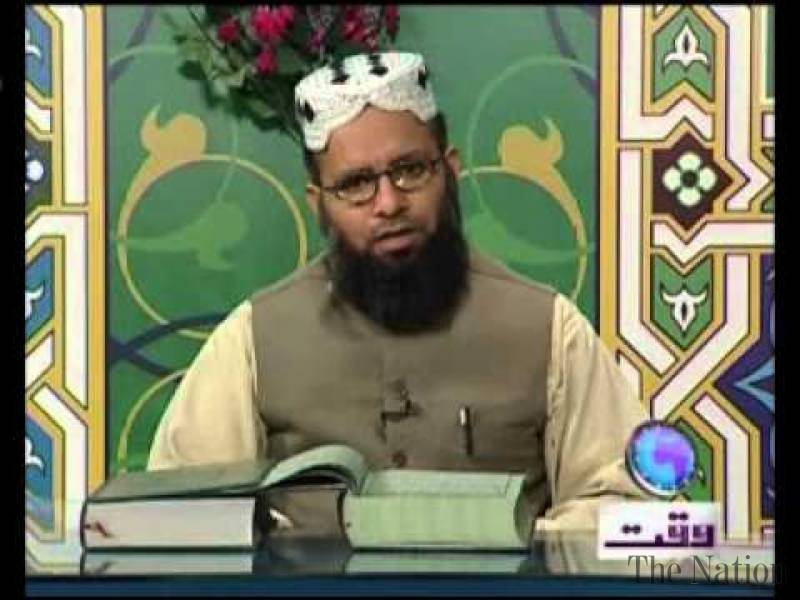A few days ago, I went through an interesting book, Aman Mera Haq. This book was presented to me by Dr. Raghib Hussain Nameemi, the author and the editor of the book, almost two months ago when I interviewed him. I am, being a student of Muslim political philosophy, keenly interested in understanding and making sense of Islamic political ideals in the 21st century’s modern and complex world, and my quest to learn more about Islam and its social, political and moral philosophies urged me to approach Dr. Raghib.
I am writing this piece, however, with an intention to shed ample light on the substance, scope and purpose of the book Aman Mera Haq. Or to put it simply: why should one read this book?
This book, let me state at the very outset, has not been written for the scholars or learned people of the field, rather it is an effort by the author(s) to present a way towards fresh thinking, peace, tolerance and mutual respect in a society that has been greatly radicalized in the name of religion – an attempt for shaping new narrative or a counter-narrative for restoring peace and stability. This book is a combination of lectures and discussions that were delivered by prominent religious scholars, educationists and journalists, during a two day workshop at Jamia Naemia.
There is no denying the fact that our society, for several reasons, has become radicalised not only in religious sphere, but our dealing from social to political spheres are sheer demonstration of an extremist mindset as well. It is also a fact that no single factor is entirely responsible for this mess. The failure of the governmental policies, misinterpretation of religion and wrong educational strategies greatly contributed to the creation and enhancement of this extremist mindset in our society.
This radical stance in our society didn’t only destroy our own sociopolitical fabric, it has also brought a bad name to Islam across the world. It has become almost a global trend to assert that “Although all Muslims are not terrorists, yet all terrorists are Muslims” (statistically it may not be incorrect). And on the basis of this argument, people further come up with a question: is there really something bad with Islam? Or does Islam, implicitly or explicitly, promote extremism? And, how has the religion of peace become a tool of spreading hatred and violence in the world?
There is one very bitter truth that all religions in public spheres are judged, not by the verses written in their holy books, but on the basis of the practices of their followers. So, Islam in a general sense, and for a lay-public, is what people do most of the time in Muslim societies. Then the question is: if Islam actually does not support, promote and advocate terrorism then why have Muslim societies embraced extremism? If any norm in any society does not get its due patronage, it dies in days. And if extremism has not died for the last almost 15 years, it compels us to believe that something really wrong is existing in Muslim societies that needs to be carefully examined and immediately addressed.
These above-outlined questions have been the main focus of all the discussions and debates, which were generated during this workshop and now have been summed up in this book Aman Mera Haq.
Some scholars accepted the challenge and, to a great extent, they put things in the right direction. For instance, Maulana Hafiz Muhammad Saleem, assistant professor Islamic studies at Shalimar College Baghbanpura, Lahore, outlined in this book a history of intellectual differences with reference to sects in Islam that have their roots in political power struggle between and among Muslim rulers in Muslim history. Furthermore, the Maulana has a sound and comprehensive framework of thought to offer us to cope with both extremism and terrorism in our society.
To cope with the current dreadful waves of religious extremism, he believes, two institutions can play fundamental and decisive role: the religious elite and the state. First, all Ulemas should realize and assume their moral as well religious responsibility to eliminate the extremist mindset from our society. In Maulana's view, positive attitude toward intellectual opposition is the first step to be learnt and demonstrated by religious elite in this journey. Second, the state should decide through the minister of religious affairs, the scope and contents of speeches delivered during the Jumma prayers. Without such censorship, Moulna concludes, our dream of a peaceful Pakistani society will never come true.
Participants also focused on individuals’ character building in a state like Pakistan that has been religiously radicalized and morally handicapped.
The most interesting thing about this book is that in order to cope with and eliminate the challenge of extremism it covers both the individuals’ moral responsibilities and political policy framework.
The workshop and the book are great efforts of Jamia Naeemia to familiarize the religious elite with complex global and national political order and at the same time to acquaint general public with the spirit of Islam that is peace and love.
Above all, the editor of the book warmly welcomes different views, understanding, disagreements, and criticism on various sensitive points. This is what rarely happens in a society like ours.
This book is a must read for all the serious students of Pakistani Politics and Sociology who are yet unable to understand and make sense of the message of Islam in building both peace and progress in 21st century.






